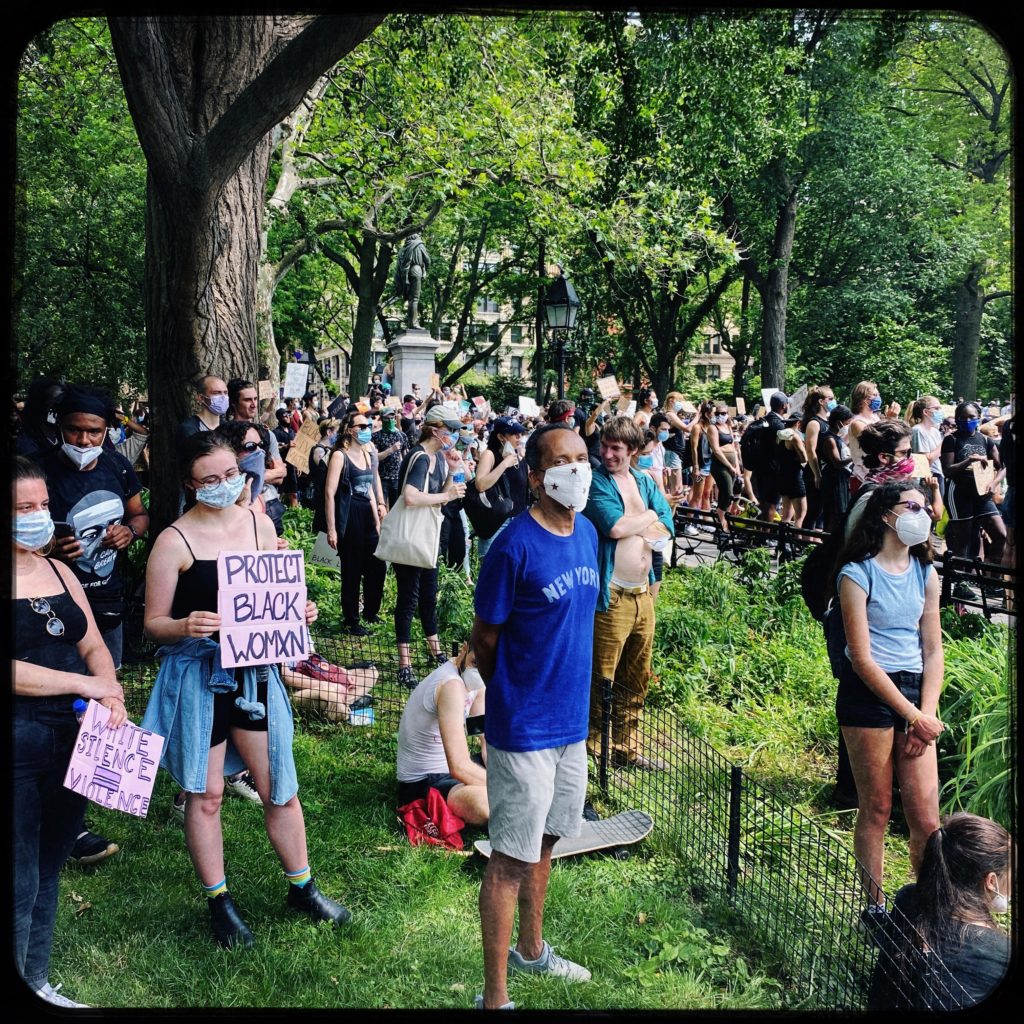Ade Odunsi, alumnus

It’s BHM this month – which aspect of Black history, be it a person, event or movement, would you like people to learn about this year?
Living in the US for the last 20 years has provided me the opportunity to develop a deeper awareness of the history of the civil rights movement. John Lewis was a giant in the movement from the early 1960s until his death earlier this year. Throughout his life he adhered to the philosophy of non-violent protest espoused by Martin Luther King. He was one of the 13 Freedom Riders that challenged bus segregation in 1961 and a lead organiser of the Selma to Montgomery marches, both events resulting in him and fellow protesters receiving severe beatings at the hands the police. He went on to serve in the US House of Representatives from Georgia’s 5th district for 33 years. Arguably his defining statement about the power of non-violent protest is the importance of engaging in “good trouble, necessary trouble” in order to achieve change, and he held by the phrase and philosophy throughout his life.
Who are your BME role models and why?
Martin Luther King, John Lewis, Mohammad Ali, Rosa Parks – in the face of vicious attacks both physical and psychological they refused to compromise on their principles and ultimately prevailed; Tessa Sanderson for winning Olympic javelin gold in 1984; Michelle & Barack Obama; Katherine Johnson (mathematician); Nelson Mandela, Oprah Winfrey, Maya Angelou, Sade….how much space do I have?
What would racial equality look like to you?
While racism at the individual level must be vigorously confronted wherever it appears by promoting understanding and acceptance, arguably the greater challenge for all societies looking to achieve equality is breaking down the structural racism that is deeply engrained within its institutions and as a result sustains or even increases inequality. This structural racism, for example, is readily apparent in many institutions such as education, the legal system and healthcare and present formidable barriers to overcome, for many people of colour.
What have you gone on to do since graduation?
I boldly graduated without a job with the intention of achieving glory representing Great Britain on the athletics track. I found a job as an assistant teacher at a private school with the thought that it would give me ample time to train. Unfortunately, it turned out that I was born to run but destined to spectate and ultimately took a job as an option trader in The City. I moved to New York in August 2001 to be near my future wife and to work for a US investment bank. We stuck it out after the terrible events in September that year and I have since worked at a number of other large financial institutions over the years, all based in New York. I currently live in Brooklyn with my wife and four kids and work at Citibank.
What’s your abiding memory of Trinity Hall?
Despite a challenging first year adapting socially to College life my abiding memory of Trinity Hall is a frenetic final year competing for the University athletics club, volunteering for the May Ball Committee, cramming for finals, the ‘endless’ lazy summer days after finals and making some life long, treasured friends along the way.
Why did you choose to study your subject?
I had no real conviction of what I wanted to do after College so economics seemed like a well-rounded choice that would give me some flexibility when I finally came around to deciding on my future. I did not find any of the hard sciences, languages or law appealing so that meant I ended up studying economics almost by default.
What advice would you give your younger self?
Whatever life throws at you, and there will be both good and bad, be present in the moment.